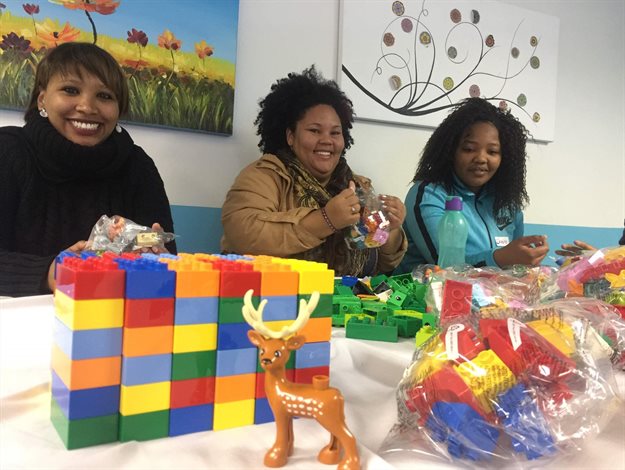The learning outcomes and experiences of school children are heavily influenced by the quality of their teachers. South Africa needs professional and experienced teachers who can truly make a difference, especially in the Early Childhood Development (ECD) sector.

Teacher at Grow Educare in Philippi Village
This year, 30 qualified ECD teachers have been receiving in-depth teacher training and professional work experience at Grow Educare Centres in Cape Town, all thanks to a collaborative partnership between YES for Youth, and Grow Educare Centres.
“A solid early learning programme and fantastic equipment alone cannot address the crisis in the country’s early childhood development sector. The challenge requires resources matched to dedicated and trained teachers, and the YES / Grow teacher internship programme forms an essential part of the solution,” says Tracey Chambers, CEO of Grow Educare Centres.
As a non-profit organisation, Grow Educare Centres provide women living in disadvantaged communities the opportunity to run private, fee-paying early learning centres that are also viable businesses using the principles of social franchising. They currently have 29 centres in operation across Cape Town, Johannesburg and Durban.
“We are particularly grateful to Nestlé for providing funding for the programme as part of their value-creation and sustainability strategy. The project has already seen teacher interns picking the fruits of their labour and adding significant value to the ECD centres where they are working,” adds Chambers.
Youth Employment Service (YES) is a collaborative South African economic enabler that acts as an “engine of jobs creation”. Under the YES programme, businesses create one-year paid internship positions for unemployed youth aged between 18 and 35 with a minimum paid stipend, all with the aim of providing high-quality work-experience, continued professional development and highly employable youth. The result: improved youth employability and bolstered business economic activity.
Professionalising the ECD teaching sector
“Our programme sets teachers up for success; we provide them with continued professional development one day a week, and practical in-classroom experience four days a week,” says Chambers.
The Grow internship programme includes two distinguishing features. Firstly, interns receive on-the-job mentoring by a trained education mentor. An important aspect to the mentoring includes personal reflection journals and monthly reports from the head-teacher assigned to the interns in the centres. This allows the interns to evaluate their progress and receive valuable feedback.
The second important feature is the weekly training programme. The interns receive a structured programme of training modules which includes personal development themes such as parenting skills, managing stress and trauma, as well as professional development themes which cover learner assessments, emergent literacy and numeracy, as well as personal financial management modules.
A winning formula
Through the internship process, Grow has helped interns to individually identify their professional career path and future career goals. These paths include application at current Grow centres for employment or further academic studies in particular fields such as special needs.
However, it is not only the interns that have gained from the initiative, as various Grow centres have also progressed tremendously. “The child-to-teacher ratio has increased in each centre; we’ve been able to provide additional training for existing ECD centre teachers during the work-week without compromising on child-teacher ratios and quality of education, and most importantly, the children at each centre have benefited,” adds Chambers.
Bright futures ahead
Ready to expand their internship programme to KwaZulu-Natal and Gauteng, Grow Educare Centres require funding for 60 interns.
Chambers concludes: “The programme will deliver 30 excellent teachers into the under-resourced ECD sector by the end of 2019. Our goal is to expand this to 60 interns in 2020 with national coverage of our Grow centres. The internship model has the potential to significantly impact the quality of education in our centres while introducing a cohort of trained and qualified teachers annually into the ECD sector thereby addressing the sustainable development goal of quality education.”


































